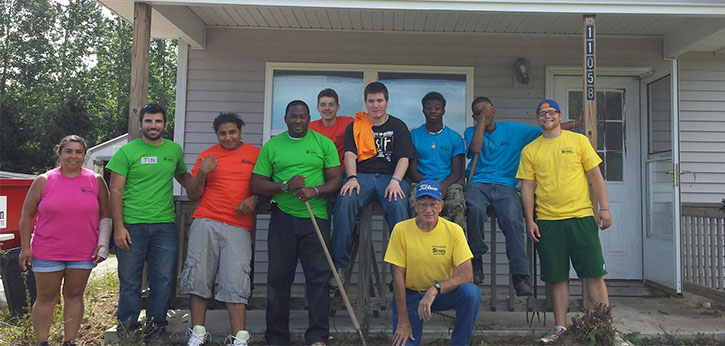IEL joins youth and communities across the country in celebrating National Reentry Week 2017 from April 24-28. It is a time to highlight the benefits of successful reentry and importance of improving reentry outcomes. In 2016, the Department of Justice sponsored over 550 events in all 50 states, the District of Columbia, Puerto Rico, and the Virgin Islands for the inaugural National Reentry Week. These events showcased the momentum behind reentry improvement as well as the diverse array of stakeholders involved. US Attorney’s Offices alone hosted over 200 events, while Bureau of Prisons facilities held more than 370, including resource fairs, employment-related events, reentry presentations, and family-related events. Connecting formerly-incarcerated individuals with opportunities and key supports offers them a pathway to employment, continued learning opportunities, and independent living, which in turn benefits the community as a whole.
Through the Ready to Achieve Mentoring Program (RAMP) and Right Turn Career-Focused Transition Initiative (Right Turn) IEL focuses on providing court-involved youth with the resources they need to reconnect with their communities. RAMP, funded by the Department of Justice’s Office of Juvenile Justice and Delinquency Prevention, uses career-focused mentoring to prevent at-risk youth from offending, though it also serves youth who are already involved with the system. For example, one youth from Houston had served nearly a year in a juvenile detention facility when he joined the program. He was having a number of problems with transitioning back to school—high incidence of truancy and serious conduct issues, to the point where he had to be taken out of classes and placed in a behavioral modification program. RAMP staff helped him come up with strategies to change his behavior through developing his Individualized Mentoring Plan and weekly goals. He participated in career-focused group and individual mentoring sessions in which he worked on homework, put together a resume and applied for jobs. Today, his school reports that his behavior and attendance have improved by leaps and bounds. He is even an active member in the drama program and has expressed a newfound passion for theater. Due to improved attendance and lack of new charges, this youth’s probation case was successfully closed.
In the Department of Labor’s Education and Training Administration-funded Right Turn, on the other hand, at least 90% of youth are already court-involved. As part of the reentry process, staff works with newly enrolled youth to identify their skills and interests before connecting them to the education, credentialing, and employment opportunities they need to follow their career path of interest. One young man came to the Right Turn program in Reno, Nevada after being referred by his probation officer. At the time, his main goals were to be employed for the first time and to find a way to complete his community service hours for school credit. Today, he is 17 years old and attending College Prep High School. After participating in a series of Right Turn Work Readiness Workshops, he is employed in his first job as a cashier at a Fuddruckers right by his school. He also participates in a number of Restorative Justice Projects and volunteers at a local church to complete his community service hours. To further his plans to pursue a career in Business, Right Turn helped him research information on financial analysts and brokers during the career exploration process. As a result, the young man has toured business programs at a number of institutions in Reno. He is on track to graduate with a high school degree in June 2017 and is enrolled in college for the fall. He continues to be a valued employee at Fuddruckers and plans to work part time while he gets his college education.
Right Turn aims to not only support youth in their reentry process, but also to empower them to become self-advocates and agents for positive change in their communities. A Right Turn site in Syracuse is creating two paid Youth Ambassador Positions for those who have successfully completed the program. Youth Ambassadors will attend outreach events for community stakeholders, work to engage incoming participants through word-of –mouth and at youth information meetings, design and lead Restorative Justice Projects where their peers give back to the community, and assist with program events. Elevating youth voice and youth leadership in this way is a key component to all of IEL’s work and involves youth as the solution in their own lives and their communities. During Reentry Week and throughout the year, IEL is proud of these youth who have chosen to transform their lives and their communities and pleased to provide strategies and resources to support this work.
